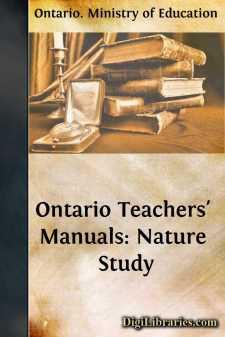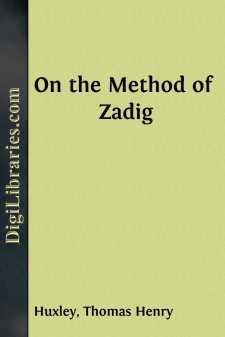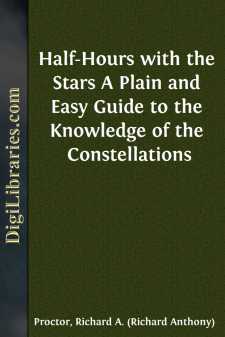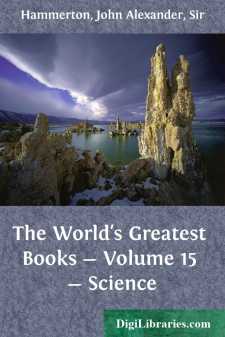Science
- Astronomy 18
- Biology 40
- Chemistry 13
- Electricity 1
- General 38
- History 6
- Light 1
- Paleontology 2
- Philosophy & Social Aspects 1
- Physics 3
- Relativity 2
- Study & Teaching 1
- Waves & Wave Mechanics 1
Science Books
Sort by:
by:
Charles Darwin
INTRODUCTION. The object of this work is not to describe all the many races of animals which have been domesticated by man, and of the plants which have been cultivated by him; even if I possessed the requisite knowledge, so gigantic an undertaking would be here superfluous. It is my intention to give under the head of each species only such facts as I have been able to collect or observe, showing the...
more...
CHAPTER I THE AIMS OF NATURE STUDY Nature Study means primarily the study of natural things and preferably of living things. Like all other subjects, it must justify its position on the school curriculum by proving its power to equip the pupil for the responsibilities of citizenship. That citizen is best prepared for life who lives in most sympathetic and intelligent relation to his environment, and it...
more...
It is an usual and a commendable practice to preface the discussion of the views of a philosophic thinker by some account of the man and of the circumstances which shaped his life and coloured his way of looking at things; but, though Zadig is cited in one of the most important chapters of Cuvier's greatest work, little is known about him, and that little might perhaps be better authenticated than...
more...
by:
Richard C. Fox
In the course of examining material from fissure deposits of early Permian age collected from a limestone quarry near Fort Sill, Oklahoma, the author recovered several tooth-bearing fragments of small pelycosaurs. The fragments were examined, compared with descriptions of known kinds appearing in the literature, and determined to be new genera within the Nitosauridae (Edaphosauria) and Sphenacodontidae...
more...
by:
Various
INTRODUCTORY NOTE Hippocrates, the celebrated Greek physician, was a contemporary of the historian Herodotus. He was born in the island of Cos between 470 and 460 B. C., and belonged to the family that claimed descent from the mythical AEsculapius, son of Apollo. There was already a long medical tradition in Greece before his day, and this he is supposed to have inherited chiefly through his...
more...
It is very easy to gain a knowledge of the stars, if the learner sets to work in the proper manner. But he commonly meets with a difficulty at the outset of his task. He provides himself with a set of the ordinary star-maps, and then finds himself at a loss how to make use of them. Such maps tell him nothing of the position of the constellations on the sky. If he happen to recognize a constellation,...
more...
V. GALILEO AND THE NEW PHYSICS After Galileo had felt the strong hand of the Inquisition, in 1632, he was careful to confine his researches, or at least his publications, to topics that seemed free from theological implications. In doing so he reverted to the field of his earliest studies—namely, the field of mechanics; and the Dialoghi delle Nuove Scienze, which he finished in 1636, and which was...
more...
Science JOHN MILNE BRAMWELL Hypnotism: Its History, Practice and Theory John Milne Bramwell was born in Perth, Scotland, May 11, 1852. The son of a physician, he studied medicine in Edinburgh, and after obtaining his degree of M.B., in 1873, he settled at Goole, Yorkshire. Fired by the unfinished work of Braid, Bernheim and Liébeault, he began, in 1889, a series of hypnotic researches, which, together...
more...
THE FORMATIVE PERIOD The best age at which to marry—Incompatibility of temperament—A happy marriage need not be a successful one—The evils of early marriage—The wedding night, its medical aspect—The honeymoon—When marital relations are painful—Times when marital relations should be suspended—The first weeks and months of wifehood—The formative period—A true marriage—A wife's...
more...
I. THE PHLOGISTON THEORY IN CHEMISTRY The development of the science of chemistry from the "science" of alchemy is a striking example of the complete revolution in the attitude of observers in the field of science. As has been pointed out in a preceding chapter, the alchemist, having a preconceived idea of how things should be, made all his experiments to prove his preconceived theory; while...
more...











